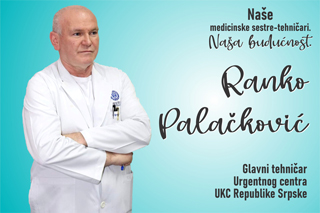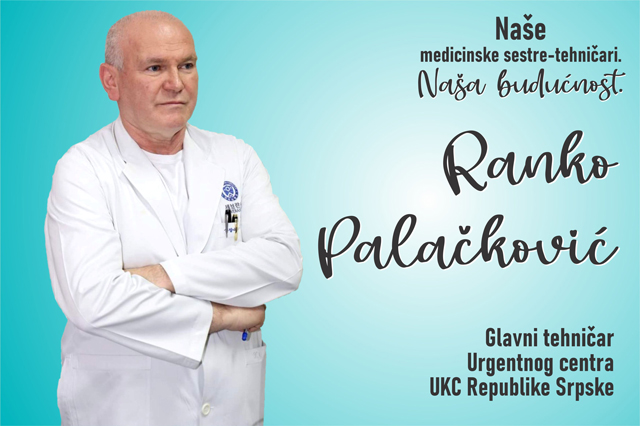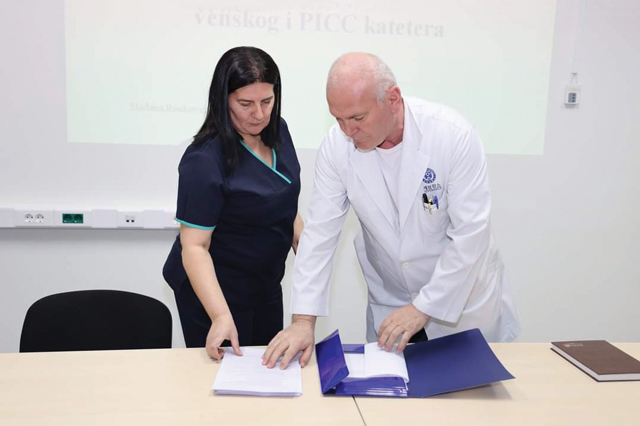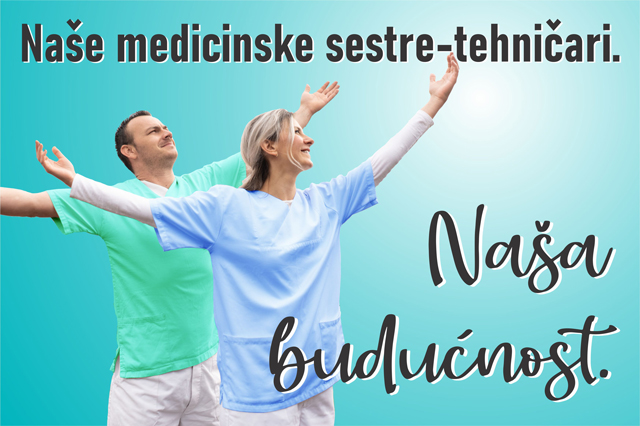
Ranko Palackovic is the Head Nurse at the Emergency Medical Center of the University Clinical Center of Republika Srpska. He graduated from the Faculty of Health Studies. He possesses a 38 years rich work experience and fondly remembers his first job back in 1985.
What he would change in his current workplace... “I would advocate for all new recruits to be initially allocated to the intensive care units, which are considered the most difficult departments.” He believes it is extremely important to expose them to the experience of caring for critically ill patients and life-threatening conditions at the very beginning. He adds that there is a need for continuous training, i.e. professional development in line with the continuous professional development programs offered, and the harmonization of knowledge and skills gained with the novelties emerging in the field of healthcare.
About the position of nurses in Bosnia and Herzegovina... Unfortunately, nurses’ disunity contributes to their current unfavorable position and the fact that other professions decide on their status.
The importance of the nurse-patient and nurse-doctor relationships... Nurses represent a pillar of the health system, and the most important segment in patient care. It is important to establish mutual respect, understanding and good communication. I would like to point out the importance of the patient's first contact with the healthcare institution, because in that moment the patient creates an impression of the health professional, the institution, and sometimes the entire healthcare system. Communication (nurse – doctor and vice versa) in the healthcare team must be professional, with maximum respect on both sides.
Healthcare providers’ outflow from Bosnia and Herzegovina... This problem could be solved by recognizing the nurses’ professional status and granting independence in their work. It is important that nursing belongs entirely to nurses. It is important to legislatively regulate the profession: to clearly define who and how becomes a nurse (STOP PREQUALIFICATIONS) and to continuously make additional efforts to improve material and professional status and provide greater visibility.
The most frequent problems nurses in Bosnia and Herzegovina encounter... Although they represent the vast majority of healthcare providers in the healthcare system, nurses are poorly visible, discriminated, underpaid, not sufficiently independent and competent in their work, and face three major ethical issues: communication, stand up to superiors, patients’ rights without responsibility.
About the trainings for healthcare providers... The importance of training facilitated by Fami Foundation is reflected in the provision of professional support in terms of professional development and functioning, greater recognition of nurses and their empowerment as individuals and within the team, as well as greater appreciation for nurses. I would like to single out the pilot project related to the supervision of nurses. The contribution of the Fami Foundation is particularly visible among nurses working in the healthcare system, who moved their own boundaries and improved management and leadership skills. Fami Foundation’s support in nurses’ professional development and academic advancement is of immense benefit.
A message to future generations that choose this profession... Nurses, numerous as are, must be united and unified, because only that way they can improve their professional and material status.
I would also like to share my own observation that for the past 6 years, the University Clinical Center of Republika Srpska has been investing in the continuous professional training and strengthening of leadership and management knowledge and skills of nurses. We have exceptional cooperation with colleagues in the region, and I would like to single out the cooperation with colleagues from University Clinical Center Ljubljana and University Clinical Center Maribor. In the past few months, employees of the Emergency Medical Center of the University Clinical Center of Republika Srpska participated in numerous trainings, such as training on triage of patients according to the Manchester model, training on triage in mass accidents (Slovenia, Sarajevo), and training on life-threatening conditions in emergency medicine (Slovenia). Sixty nurses from the Emergency Medical Center completed the ILS course (Resuscitation Council of Serbia) in the past period.
*ILS – immediate life support



